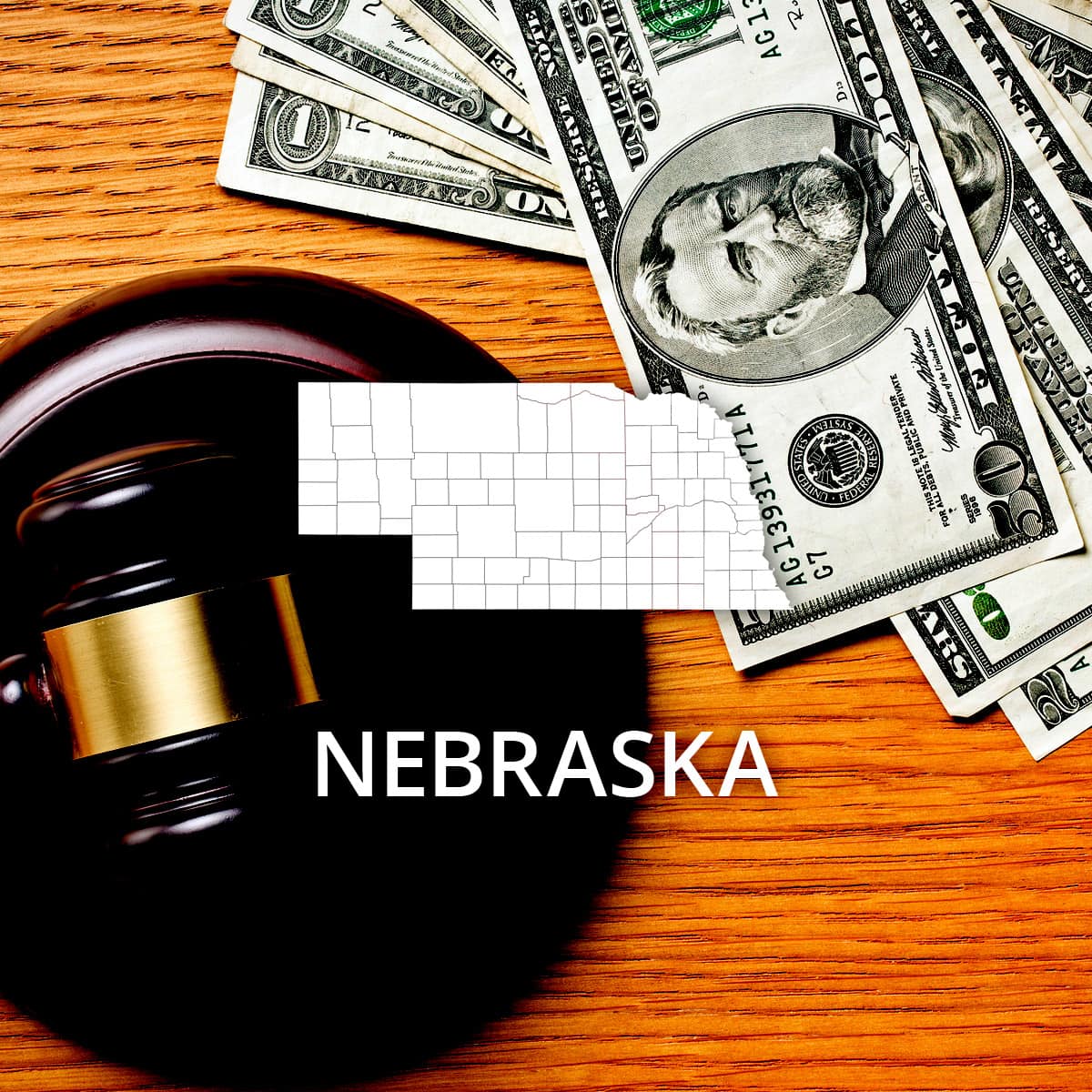How to File Bankruptcy in Nebraska
 According to the 2005 Bankruptcy Act, all states must follow national guidelines for bankruptcy proceedings. There are three locations for Nebraska District Bankruptcy Courts where petitioners can file for bankruptcy. The most commonly filed types of bankruptcy are Chapter 7, Chapter 11, Chapter 12, and Chapter 13.
According to the 2005 Bankruptcy Act, all states must follow national guidelines for bankruptcy proceedings. There are three locations for Nebraska District Bankruptcy Courts where petitioners can file for bankruptcy. The most commonly filed types of bankruptcy are Chapter 7, Chapter 11, Chapter 12, and Chapter 13.
Nebraska Bankruptcy Types: Chapter 7, Chapter 13, Chapter 11 & Chapter 12
Chapter 7 Bankruptcy in Nebraska
Chapter 7 bankruptcy is used to eliminate as much of the petitioner's debt as possible. Unsecured outstanding debt is repaid by liquidating the non-exempt assets of the debtor. This makes Chapter 7 an attractive option for those with fewer assets and a high debt to income ratio; however, not all petitioners are eligible for Chapter 7.
Chapter 13 Bankruptcy in Nebraska
Another option for persons searching for debt relief in Chapter 13. This type of bankruptcy reorganizes debt so that it can be minimized and repaid over time. The repayment period is typically between 3 and 5 years. A petitioner of Chapter 13 is often able to hold onto their assets such as a house or car as long as payments are being made as agreed upon in court.
Chapter 11 & Chapter 12 Bankruptcies in Nebraska
Chapter 11 is similar to Chapter 13 but used for the debt relief of businesses. Often, a business can file for Chapter 11 and continue to stay in operation and have some protection of business assets while making payments on debt over a period of 3 to 5 years. A specific code for family farmers and fishermen is called Chapter 12, and offers a similar arrangement to these types of family-owned agricultural businesses.
Official bankruptcy forms for the U.S. Bankruptcy Courts are available at http://www.uscourts.gov/forms/bankruptcy-forms or RecordsFinder.com Court Forms Section.
Steps to Filing Bankruptcy in Nebraska
Credit counseling is required for all petitioners of bankruptcy within 6 months prior to filing. Some may find they do not need to file for bankruptcy and can make financial changes to repay debt. Other debtors choose the route of bankruptcy to eliminate or restructure debt. If bankruptcy is chosen, there are several steps that must be followed to complete the process.
- The first step is to determine for which type of bankruptcy the petitioner is eligible. This is done by way of a means test. The means test takes into account the petitioner's income over the last 6 months and compares it to the income of all other wage earners in Nebraska. If the petitioner's income is less than the median, he or she may file for Chapter 7 or Chapter 13. Those with income over the median have Chapter 13 as an option.
- Gathering paperwork is the next step of the process to prepare for court. This includes, but is not limited to 2 years of tax statements, records of recent major financial transactions, property deeds, vehicle titles, monthly expenses, a list of all debts, loan documents, and an inventory of assets. If Chapter 13 is being filed, there is also a required debt repayment summary that the petitioner must write to show the court how they plan to pay off the debt in 3 to 5 years.
- These documents are then combined with the necessary forms for filing for bankruptcy and given to the court. Some petitioners choose to have legal counsel when filing, while others choose to prepare and submit all of the documents on their own. The cost to file for Chapter 7 is $306 and can be waived in many cases. Chapter 13 has a fee of $281 and cannot be waived, but can be paid in installments if necessary. Of course, all attorney fees are the responsibility of the petitioner.
- Upon receiving these documents and fees which the court refers to as "the schedule," there is an automatic stay issued by the court. This is to prevent creditors from having direct contact with the debtor and stops the proceedings of foreclosure. A court-appointed trustee then reviews the case and uses any non-exempt assets to repay an outstanding debt of the petitioner. It is also the responsibility of this trustee to hold a 341 meeting where the creditors and debtor can negotiate terms of repayment, if no agreement is made, a judge will intervene.
- The last step of filing for bankruptcy is to complete a financial management course as assigned by the court. Those who have filed for Chapter 13 are also responsible to continue making payments as described in the repayment summary to avoid going back to court.
Nebraska Bankruptcy Court Locations
There are 3 District Court locations in which a petitioner can file for bankruptcy in Nebraska. One court is located in Lincoln, another in North Platte, and lastly, there is a court situated in Omaha. Each court has shared jurisdiction over every county in the state.
